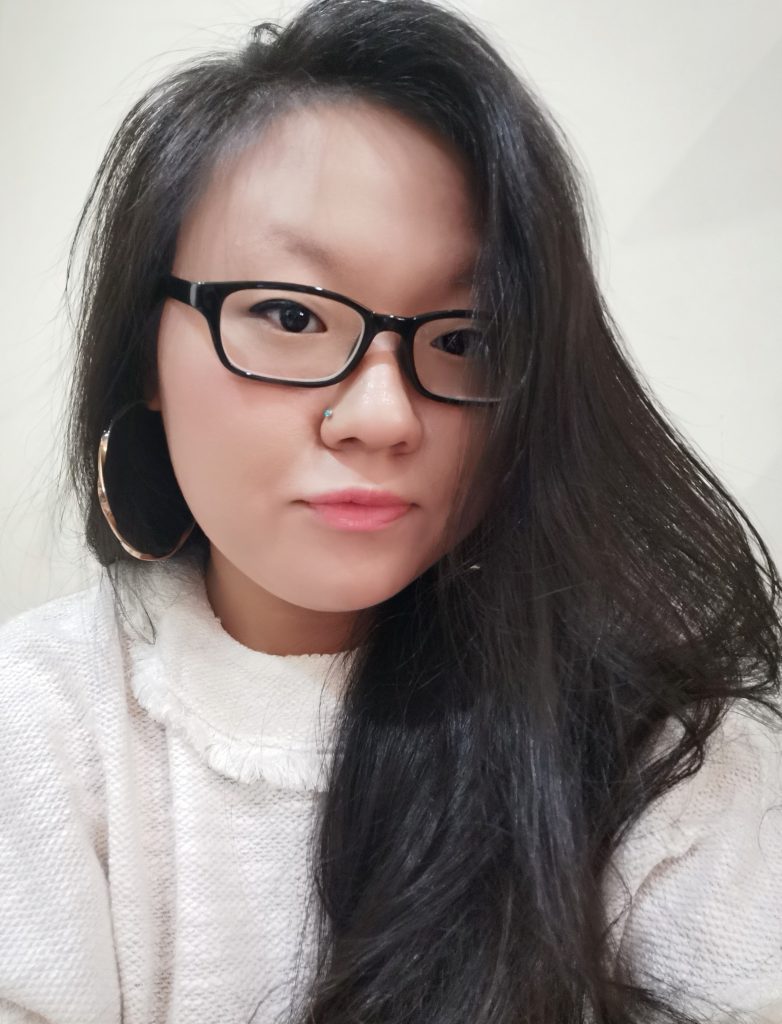
Studying medicine in one of the world’s top universities, RCSI & UCD Malaysia Campus is the most rewarding pathway you can ever embark on. | |
Programme | The 5-Years Undergraduate Programme is delivered transnationally – beginning with comprehensive pre-clinical training in Dublin followed by extensive clinical training in Penang. Why RCSI & UCD Malaysia Campus?
|
Intake | Every September |
Duration | 5 Years
|
Fees (2021) | Malaysian: RM620,000 International: RM740,000 |
For more information about the Undergraduate programme, entry requirements and scholarships, visit here or contact Excel Education. | |
First off, Congratulations on receiving your interview invitation! It’s time for some good preparation.
The Medical School interview can be one of the most nerve-racking questions for every candidate. And the best way to help reduce anxiety is to be well prepared. Before jumping straight into what questions will be asked and how you should answer them, take a step back and question yourself.
“What is the purpose of this medical interview?”
After all, medical schools can learn so much from your application materials. Well the answer is straightforward. Medical school wants to learn about you.
Other than your excellent grades, how passionate and highly motivated are you towards medicine? Is the school’s programme a good fit for you or perhaps you would fit better in other medical schools? Do you have any significant interpersonal difficulties like major social awkwardness? Do you have a diverse outlook in life to deal with people from different areas of life?
Now that you understand the purpose of a medical interview, let’s dive into the 8 tips that would ultimately help you ace your interview!
Tip #1: Which Type of Interview and Who are your Interviewers?
Understand clearly the type of interview that would take place for you. Will it be a Face-to-Face or Online Session?
If possible, get to know who will be interviewing you. You will be mentally prepared and less panicky during the day.
There are usually three different types of interviews – the Conventional Discussion Based, Oxbridge Style Interviews and Multiple Mini-Interviews (MMI). However, a vast majority of candidates will be invited to attend the Conventional Discussion Based.
Types of interview
Conventional discussion based
(a) Why do you want to study medicine?
(b) Why are you a strong candidate?
(c) Face-to-face or online
Oxbridge style interviews
-Designed to identify candidates with critical thinking/out of the box thinking.
Multiple mini-interviews (MMI)
-Exam stations looking for different ‘traits’. For example empathy; ethical thinking
-Structured scoring system
Who are your interviewers?
Faculty members (usually doctors or scientists) / Admissions officers / Student affairs / Medical students
What type of interview will it be?
Individual / Panel / Several individuals / Group
Tip #2: Questions you should prepare
Other than academic background, candidates will be determined through other essential questions such as:
(a) Why do you want to become a doctor? Dig into yourself and find your motivation towards medicine.
What are the characteristics that make a good doctor?
(b) Extracurricular and leisure activities: What do you do in and out of school, as an all-rounder?
This tells your interviewer how suitable you are other than academic pursuits.
(c) Employment and research experience: Have you spent some time shadowing a doctor? Have you seen what a doctor does? If you have, be ready to discuss your experience on how you have involved yourself in any research.
(d) Views on medical problems or relevant ethical issues
You should be able to have views on medical problems.
For example, knowing the worldwide pandemic. If you are in Malaysia, you should know what the Director-General of Health has done to actually control Covid-19 in Malaysia. What are the testings and tracings? Why does social distancing reduce the spread of Covid-19?
Side note: You are expected to think ethically. In an interview, you are not expected to know the answers. |
(e) Read lists of medical school interview questions online and prepare answers
Do not just note down answers you get online, instead write down your own answers – what you would actually say. Read a few medical topics in Malaysia as well as other locations relevant to your medical school.
(f) Research the medical school you are applying to. How would it be a good fit for you?
For example, if you are applying to RUMC, RCSI or UCD, understand the course; learning style and curriculum and know about Malaysia and Ireland. This will ensure interviewers that you understand the programme and how well it fits you.
Tip #3: Practice,video tape yourself and critique your performances
(a) Prepare and practice interview answers to yourself.
(b) Do mock interviews with your family, teachers or friends. Ask for their advice. If you have friends who attend medical school as well, ask them for advice. They may share other beneficial tips.
(c) If your interview is conducted online, make sure to check your device, the kind of software you will be using to connect with your interviewers as well as your internet connection.
Tip #4: First Impressions are important even if it is online
It is so important to recognize that applying to a medical school is a professional activity and after all the hard work and preparation, you surely do not want to leave an impression that decreases your chance of admission and a dress code that interviewers can clearly remember after your session.
(a) Be on time (or early!)
(b) Do not wear casual clothings and jeans. Dress smartly and conservatively. Be clean, neat, have your hair cut or done well. Look like a doctor!
Suit and tie
Men, put on your suit and tie. The attire for a medical school interview is conservative, hence you may go for colours that associate with professionalism like navy blue, grey and black. Be sure to match your suit, tie and shoes well. A simple choice of black or brown shoes are both conservative and professional.
Suit Blazer or Dress
Ladies, you can wear a suit blazer with pants or a knee-length skirt. Remember to keep things simple. Avoid bright colours and patterns; go for black, grey and navy blue as they always do the trick.
‘’Is it appropriate to wear a dress to a medical school interview?’’ The answer is yes.
Just like a suit blazer with pants or skirt, make sure your dress is conservative, not too revealing and dark-coloured.
Make-up and accessories
A little touch up would always do good. You may apply a light concealer, eyeliner, mascara, eyeshadow and lipstick. Once again, keep things simple. Necklaces, watches and earrings are nice touches but they are not necessary. If you like to add these touches, a pair of earring studs look professional and well.
(c) Have your documents ordered in a portfolio or well organized online
(d) Good eye contact, smile and firm handshake
(e) Introduce yourself. Make a good introduction.
Do not just introduce yourself with your first name “Good afternoon, I’m Jonathan”.
Instead say Good afternoon, I’m Jonathan Lee…..
(f) Try not to fidget
Tip #5: Take your time
Take your time when it comes to providing your interviewers a good response, They are not looking for speed but a quality response. If you require a little more time to think of the right answer, don’t be afraid to inform your interviewers. You may say
“Oh, that is not a question I’ve necessarily thought I’d be asked. Do you mind if I think about that for a second?”
This is not a bad thing. In fact, it shows your interviewer that you are actually processing your thoughts to provide a good answer.
For example, “Why Medicine?”
Provide a structured answer by sticking to a rule of three. Make three clear, decisive points and conclude your statement.
Tip #6: Use personal examples
Use personal examples to demonstrate your skills and experience. Instead of telling the interviewers about your unique qualities such as leadership and empathy, prove to them through your stories and impress them.
For example, “What qualities do you have that you feel are important for a doctor?”
Firstly, I recognise that a doctor has a position of considerable responsibility, and good leadership skills are essential. I demonstrate this in my work for my church, as a leader for a youth club and helping at a summer holiday club for primary school children near where I live. My youth work has taught me patience and understanding, especially towards those with learning difficulties. I was also pleased to be made Deputy Head of House and Senior Prefect at school, taking on various organizational roles,…
For example, “What do you understand by empathy?”
I first really understood empathy during my hospital work experience. When I saw the doctors talking to lymphoma patients, it left me with admiration and respect for the sensitivity and understanding with which the doctors communicated with the patients and their families and made me see that there was nothing I wanted more than to also take on the responsibility of caring for and treating patients.
Tip #7: Answer the question
It is surprising that many students fail to answer even a simple question “Why this Medical School?”. So be sure to do your research on the school and the programme. Carefully listen to each question then incorporate the question into your answer. By doing this, you show that you have listened and remind yourself to address the question. Again, stick to the rule of three clear and decisive points.
For example “Why this medical school?”
I have long wanted to attend RUMC for several reasons: it gives me the opportunity to attend two different medical schools in two countries, Ireland and Malaysia, and I feel that will broaden my experience and my thinking. I am also keen on research and RUMC offers me the opportunity to engage in summer research with experienced researchers in Dublin. I have heard from friends that the teaching in RUMC in the Dublin universities and in Penang in the hospitals is of the highest quality and is designed to make you the best possible doctor and succeed in your internship.
Tip #8: Follow Up
Send a ‘thank you’ email after the interview to impress and make yourself notice again. More importantly make some notes for yourself and go through the whole process by questioning yourself on what you did well, what you could improve and again is this the right medical school for you.
(a) Who interviewed you?
(b) What questions did they ask?
(c) What were your answers?
(d) What did you do well?
(e) What could you have done better?
Finally, you put in a lot of effort. Take a good break and relax!
Curious about the Undergraduate Medicine Programme at RCSI & UCD Malaysia Campus?
For more details, visit their website or contact +604 – 217 1888.
For further information, feel free to contact Excel Education!
Enrol Now
Recommended Articles to Read
About the Author

Ivonne Lim
Ivonne is a Digital Marketer at Kode Digital. She helps businesses with the right game plan to drive more sales and increase brand recognition. Meanwhile, she is discovering her Ikigai while enjoying whisky and art. Reach out and have a chat with her on LinkedIn.


